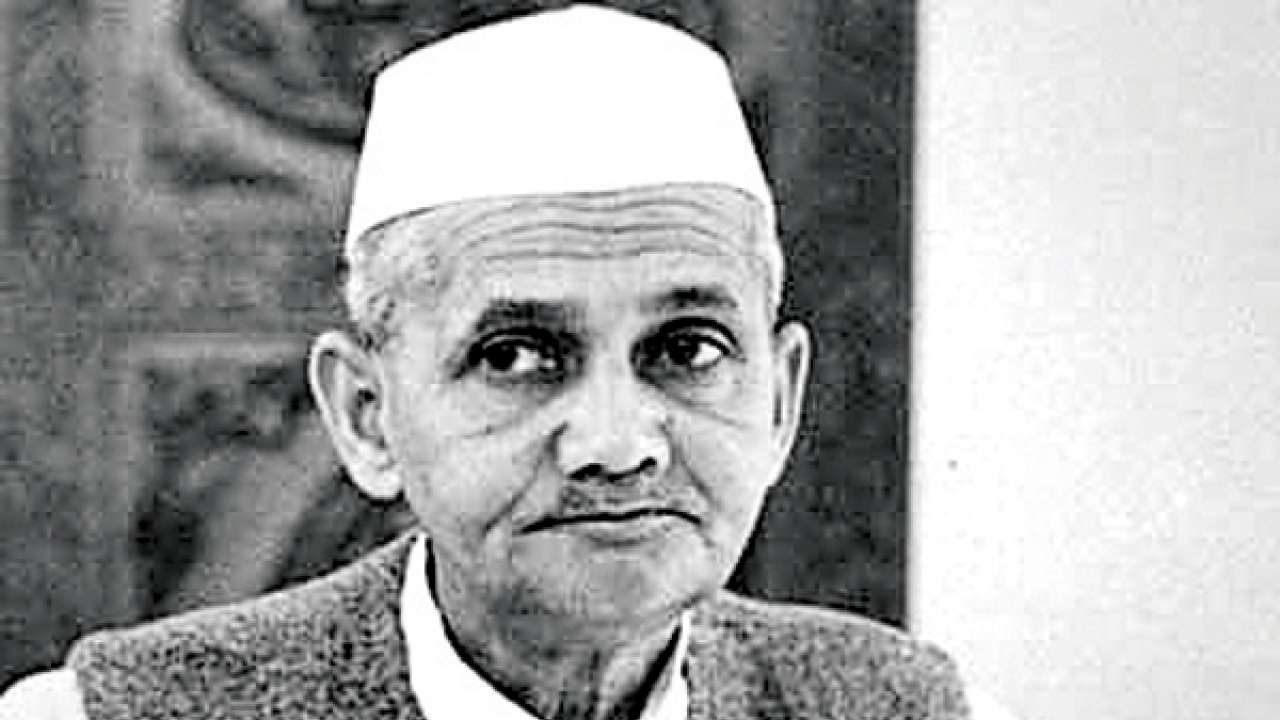Lal Bahadur Shastri Jayanti: On the occasion of Lal Bahadur Shastri Jayanti, let us remember the man who served as the Prime Minister of India for just over a year, from 1964 to his untimely death in 1966. Though his tenure was short, Shastri left an indelible mark on Indian history. Here are some quotes by and about Lal Bahadur Shastri that capture his essence.
Early Life and Education
Lal Bahadur Shastri was born on 2 October 1904 in Mughalsarai, Uttar Pradesh, into a Hindu family who were traditional Sanskrit scholars. His father was Sharada Prasad Srivastava, a schoolteacher who later became a clerk in the Revenue Office at Allahabad. Young Lal Bahadur was educated at Harish Chandra High School in Mughalsarai and later at Kashi Vidyapeeth in Varanasi. In 1926 he joined the Servants of the People Society, a group set up by Lala Lajpat Rai that worked for the empowerment of the lower castes and outcastes.
Shastri joined the non-cooperation movement against British rule led by Mahatma Gandhi and was jailed twice during this period, first for two months in 1921 and then for a year in 1930. He married Lalita Devi in 1928 and the couple had three sons and a daughter.
Quotes By Mahatma Gandhi on Change, Equality, Faith and Forgiveness
Political Career
Lal Bahadur Shastri was an Indian politician who served as the Prime Minister of India from1964 to 1966. He was a leader of the Indian National Congress and a close associate of Jawaharlal Nehru.
Shastri joined the Indian independence movement in the 1920s. He spent several years in jail during the freedom struggle. He was arrested in 1930 for his involvement in the Non-Cooperation Movement and again in 1942 for his participation in the Quit India Movement.
After India gained independence in 1947, Shastri took on various ministerial roles in the government. He became Minister for Transport and Communications in 1951, Minister for Home Affairs in 1952, and Deputy Prime Minister in 1962.
Shastri’s sudden death in 1966 left a void in Indian politics. His two-year tenure as Prime Minister was marked by significant achievements that laid the foundation for India’s future development.
International Day of Non-Violence 2022: Quotes, History, Importance
Prime Minister of India
Lal Bahadur Shastri was the Prime Minister of India from 1964 to 1966. He was born on October 2, 1904 in Mughalsarai, Uttar Pradesh. His father was a schoolteacher, and his mother was a homemaker. After completing his primary education, he enrolled at the Vishweshwaraya Institute of Technology in Bangalore. However, he dropped out after one year to join the freedom struggle against the British Raj.
Shastri rose through the ranks of the Indian National Congress and became one of Jawaharlal Nehru’s closest aides. When Nehru died in 1964, Shastri succeeded him as Prime Minister. As Prime Minister, Shastri advocated for a policy of non-alignment and implemented several socio-economic reforms. He also played a key role in resolving the 1965 India-Pakistan War.
Shastri died suddenly on January 11, 1966, just days after signing the Tashkent Declaration with Pakistan’s President Muhammad Ayub Khan. He was posthumously awarded the Bharat Ratna, India’s highest civilian honor Bharat Ratna.
Death and Legacy
Lal Bahadur Shastri was an Indian politician who served as the Prime Minister of India from 1964 to 1966. He is considered one of the most influential leaders in modern Indian history and his birthday, October 2, is celebrated as National Unity Day.
Shastri’s sudden death in Tashkent, just days after signing the historic Tashkent Declaration with Pakistan President Muhammad Ayub Khan, shocked the nation. He was posthumously awarded the Bharat Ratna, India’s highest civilian honor.
Shastri’s legacy continues to inspire Indians today. His commitment to non-violence, national unity, and simple living are just some of the values he embodied that are still relevant today. As we celebrate his birth anniversary, let us remember his words and work towards building a stronger, more united India.
International Day of Non-Violence 2022: Date, History and Meaning
Quotes by Lal Bahadur Shastri
1. “We believe in peace and peaceful development, not only for ourselves but for people all over the world.”
2. “There is no substitute for hard work.”
3. “happiness lies in the joy of achievement and the thrill of creative effort.”
4. “If we are to progress, we must bring all sections of society with us.”
5. “I am convinced that if we are to arrest the decline of our country, it is essential that we revive our faith in ourselves and our destiny.”
Conclusion
Lal Bahadur Shastri was an amazing leader, and his quotes continue to inspire people even today. On the occasion of his Jayanti, let us take a look at some of his most memorable quotes that are still relevant in today’s world.


















